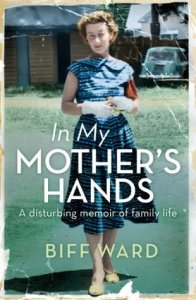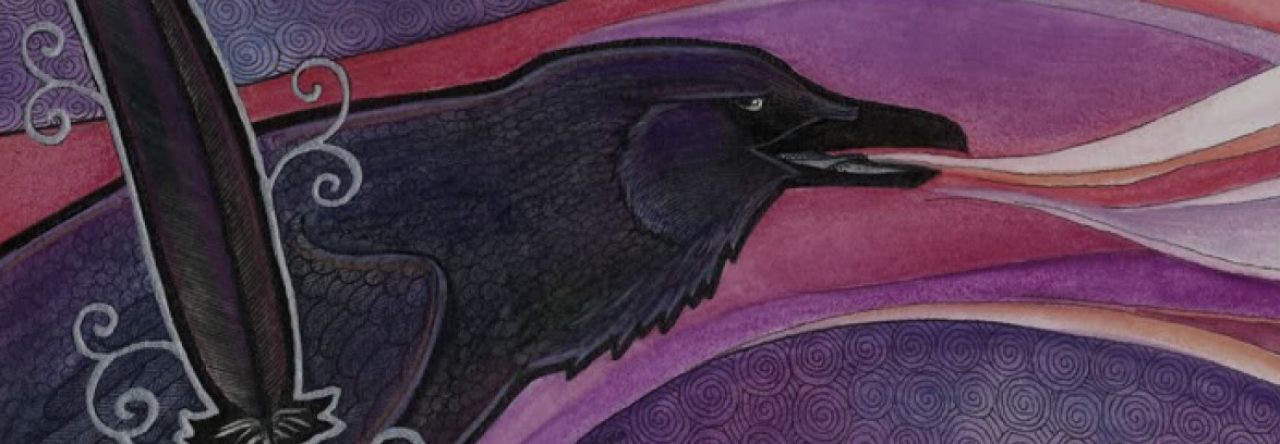
There are secrets in this family. Before Biff and her younger brother, Mark, there was baby Alison, who drowned in her bath because, it was said, her mother was distracted. Biff too, lives in fear of her mother’s irrational behaviour and paranoia, and she is always on guard and fears for the safety of her brother. As Biff grows into teenage hood, there develops a conspiratorial relationship between her and her father, who is a famous and gregarious man, trying to keep his wife’s problems a family secret. This was a time when the insane were committed and locked up in Dickensian institutions; whatever his problems her father was desperate to save his wife from that fate. But also to protect his children from the effects of living with a tragically disturbed mother.
In My Mother’s Hands is a beautifully written and emotionally perplexing coming-of-age true story about growing up in an unusual family.
This review is presented as part of my commitment to the Australian Women Writers Challenge.
I purchased this book.
When the Stella Prize longlist for 2015 was announced, I went through and downloaded samples of the books that interested me. This is the first book for which I read the sample and had to keep on reading.
Biff Ward grew up in a house that was unlike the houses of the people she knew. There was the shadow of her sister Alison, said to have drowned in her bath as a baby when her mother fainted. And there was Biff’s mother, a woman who always seemed distracted, apart from her family. At times this distraction broke and became something else: a paranoia that they were being watched, that people were coming to get them.
As Ward grows up, her mother becomes more and more detached, more unstable. She begins to gouge at her hands, pare back her nails with a razor, trying to rid herself of a “rash”. She wears gloves all the time that she is not gouging. Ward’s father copes as best as he can, though at times this “coping” seems to veer very close to abuse. He has a string of affairs, but he always returns to his wife, this woman who seems empty, who seems so incredibly sad.
It is as an adult, living apart from her mother, that Ward sets off on a journey to discover what really happened to Alison, what really is wrong with her mother. As she uncovers the truth, there is an indescribable sorrow that flows beneath the words of the book. Sorrow for Ward and her brother, essentially growing up without a mother. Sorrow for Ward’s father, who sought to protect his wife from a state asylum, the only treatment for mental illness at the time. And sorrow most of all for Ward’s mother, suffering most likely from postpartum psychosis and schizophrenia.
Ward draws parallels between her life and Jane Eyre, with the mad wife Bertha locked in the attic. Reading this book, I wonder how many Berthas there have been, essentially locked away for lack of real treatment for mental illness. Ward’s mother lived in a time before antidepressants and antipsychotics, a time when mental illness was hushed up, swept beneath the rug, hidden by gloves.
This is an incredibly important memoir, and I can only begin to imagine how painful it must have been for Ward to write. Without real help, her whole family suffered because of her mother’s mental illness. There is no blame in this memoir on Ward’s part, just that deep sorrow for the woman her mother might have been, if there had been real help for her at the time. Ward is to be thanked for her honesty and strength. This is not an easy read, by any means, but it is a book that is very much worth reading.

Biff Ward
Thanks, Stephanie – I have only just seen this. It’s very kind of you to write so passionately. Yes, mental illness is a topic that still needs a very great deal of airing.
Please be assured it was not painful to write – by then I had ‘come out the other side’. It was a joy to write because I was ‘being a writer’ in full at last, having spent decades writing on the side.